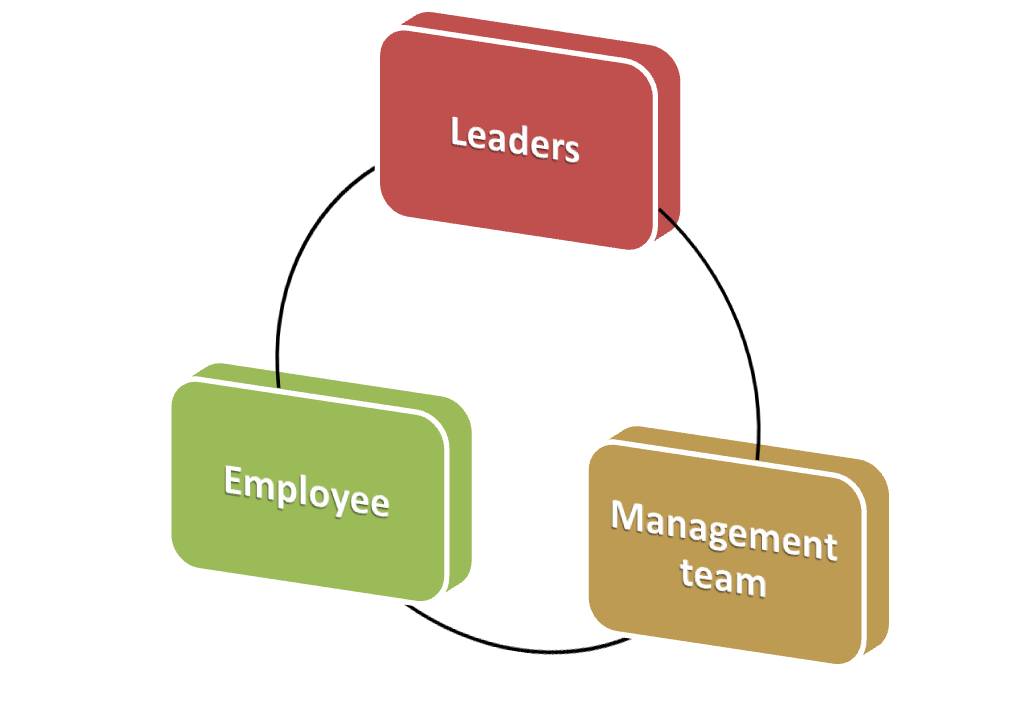How Middle Managers Drive Productivity And Employee Engagement

Table of Contents
Fostering a Culture of Open Communication and Feedback
Transparent communication is the bedrock of any high-performing team. Building trust and psychological safety amongst team members is paramount, and middle managers play a pivotal role in cultivating this environment. Open communication fosters a sense of belonging and encourages collaboration, directly impacting employee morale and productivity.
- Regular team meetings with open dialogue: Schedule consistent meetings that encourage two-way communication, allowing team members to voice concerns, share ideas, and contribute to decision-making processes.
- Utilizing multiple communication channels: Employ a variety of communication tools, including email, instant messaging platforms, and regular one-on-one meetings, to ensure everyone feels heard and informed. Adapting to different communication preferences is key to effective team communication.
- Actively soliciting feedback from team members on projects and processes: Regularly ask for feedback on ongoing projects and operational processes. This shows employees their opinions are valued and allows for continuous improvement. Effective employee feedback mechanisms are crucial for boosting morale and identifying areas for optimization.
- Providing constructive criticism and recognizing achievements: Regularly provide both constructive criticism and positive reinforcement. Celebrate successes, both big and small, to foster a positive and supportive work environment. This includes acknowledging individual contributions and team achievements. Effective communication strategies are essential to deliver both positive and negative feedback in a productive way.
Empowering and Developing Team Members
Empowered employees are more engaged and productive. Middle managers can significantly impact team performance by delegating effectively and fostering a culture of ownership. This involves providing the necessary resources, training, and opportunities for growth.
- Clearly defining roles and responsibilities: Ensure each team member understands their role, responsibilities, and how their work contributes to the overall team goals. Clear role definitions prevent confusion and promote accountability.
- Providing the necessary resources and training: Equip team members with the tools, resources, and training they need to succeed. This might include software, equipment, professional development courses, or mentorship opportunities. Investing in talent development is an investment in the team's future success.
- Offering opportunities for skill development and career advancement: Identify opportunities for employees to enhance their skills and advance their careers. This could involve sponsoring training, mentoring programs, or internal promotion opportunities. Skill enhancement initiatives improve employee retention and create a culture of growth.
- Delegating tasks effectively and trusting employees to complete them: Trust your team members to handle their responsibilities independently. Effective delegation empowers employees and allows managers to focus on strategic initiatives. Employee empowerment is a cornerstone of a high-performing team.
Setting Clear Goals and Expectations
Well-defined objectives are crucial for focused effort and measurable results. Middle managers must ensure everyone understands the team's goals and how their individual contributions align with the bigger picture.
- Using SMART goals (Specific, Measurable, Achievable, Relevant, Time-bound): Establish clear and concise goals that are specific, measurable, achievable, relevant, and time-bound. This ensures everyone is working towards the same objectives.
- Regularly reviewing progress and providing support: Regularly check in with team members to monitor progress, provide support, and address any challenges that arise. This demonstrates engagement and helps keep the team on track.
- Ensuring alignment between individual and team goals, and overall company objectives: Ensure that individual and team goals align with the broader organizational objectives. This provides context and purpose for everyone's work.
- Utilizing project management tools for better tracking and collaboration: Implement project management tools to track progress, facilitate collaboration, and improve overall efficiency. Effective project management improves team productivity and ensures timely completion of projects.
Recognizing and Rewarding Achievements
Recognizing and rewarding accomplishments is crucial for maintaining high morale and encouraging continued high performance. Middle managers play a vital role in creating a culture of appreciation.
- Implementing regular performance reviews and feedback sessions: Conduct regular performance reviews to provide constructive feedback, recognize achievements, and identify areas for improvement.
- Offering rewards and recognition programs (bonuses, promotions, public acknowledgment): Implement reward and recognition programs to acknowledge outstanding contributions and celebrate successes. This can include bonuses, promotions, public acknowledgment, or other forms of appreciation.
- Celebrating successes, both big and small: Create a culture where both individual and team achievements are celebrated. This fosters a positive and motivating work environment. Employee recognition boosts morale and encourages continued high performance.
- Creating a positive and appreciative work environment: Foster a culture of appreciation and respect, where employees feel valued and appreciated for their contributions. A positive work environment is essential for employee retention and productivity.
Conclusion: The Indispensable Role of Middle Managers in Driving Success
In conclusion, middle managers have a significant impact on both team productivity and employee engagement. By mastering the strategies outlined above – fostering open communication, empowering team members, setting clear goals, and recognizing achievements – middle managers can create a highly productive and engaged workforce. By implementing these strategies, middle managers can significantly boost their teams' productivity and employee engagement, leading to a more successful and fulfilling work environment. Start implementing these strategies today and witness the transformative impact on your team! Improving employee engagement and boosting team productivity is within your reach – embrace your role in driving success.

Featured Posts
-
 Aaron Rodgers To Steelers Insider Squashes Pat Mc Afee Show Speculation
May 22, 2025
Aaron Rodgers To Steelers Insider Squashes Pat Mc Afee Show Speculation
May 22, 2025 -
 Quiz Votre Niveau D Expertise Sur La Loire Atlantique Histoire Gastronomie Culture
May 22, 2025
Quiz Votre Niveau D Expertise Sur La Loire Atlantique Histoire Gastronomie Culture
May 22, 2025 -
 The Pig Familys Big Day A Gender Reveal Party For Their New Baby
May 22, 2025
The Pig Familys Big Day A Gender Reveal Party For Their New Baby
May 22, 2025 -
 Cao Toc Dong Nai Vung Tau Du Kien Thong Xe Thang 9
May 22, 2025
Cao Toc Dong Nai Vung Tau Du Kien Thong Xe Thang 9
May 22, 2025 -
 Rock Icon Dead At 32 Fans Mourn The Loss
May 22, 2025
Rock Icon Dead At 32 Fans Mourn The Loss
May 22, 2025
